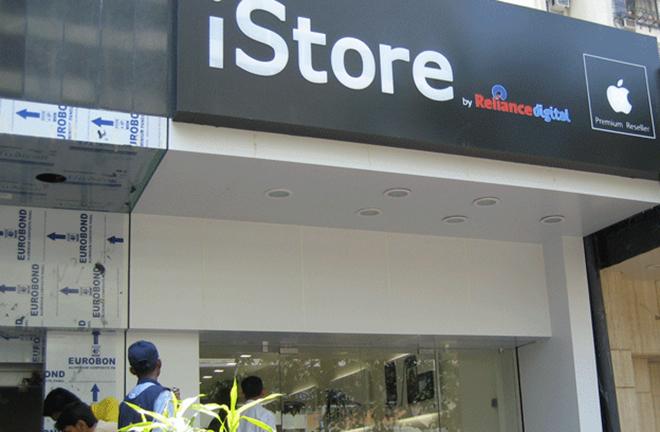As emerging market currencies fall against the U.S. dollar, Apple appears to have chosen not to raise its prices, possibly signaling Cupertino's intention to use the devaluations to increase market share.
Currency Challenges
Companies that sell across international borders face a unique pricing problem: how to account for fluctuating currency exchange rates that can erase tens of percentage points of a product's profit margin in a single month. To compensate, many businesses choose to reset their pricing either on a recurring schedule or when exchange rates pass a certain threshold. Still others hold prices steady, absorbing currency devaluations in reduced margins.
Apple traditionally falls into the latter camp; only a significant swing in rates will lead Cupertino to alter its pricing strategy. In Japan, for instance, where the yen began a precipitous decline in September of 2012, Apple waited nearly nine months from the start of the yen's devaluation to raise prices in its Japanese retail stores, absorbing a cut of more than 25 percent to its famously high margins in the interim.
Apple appears to have embraced the U.S. dollar's recent decline as an expansion strategy in some emerging markets, where the prices for Apple gear from the company's resellers has remained level despite tumbling currencies.
Asian focus
In India, where the rupee has fallen nearly 22 percent in the past year, prices from Apple Premium Resellers — essentially third-party Apple stores — have scarcely risen. In one example, Reliance Retail, Apple's largest premium reseller partner in India, continues to offer the base model 13" MacBook Pro for the same price it did over one year ago, RS 81,900 ($1310). Since it is improbable that resellers are absorbing the loss themselves, Apple's stance means that it likely brings home nearly $250 less per unit than it did at this point last year.
The company has additionally undertaken a more "aggressive" sales approach in India, with its operational staff reportedly swelling to more than 150 alongside significant ad budget increases for the iPhone. The world's second most populous nation features a smartphone penetration rate of less than 10 percent and analysts predict that India could surpass the United States as the world's second largest smartphone market by 2017.
Another emerging market, Indonesia, has received similar treatment as the southeast asian country's rupiah has fallen 18 percent year-over-year. Apple's official Indonesian site, which does not sell products but instead lists prices and refers customers to Apple's reseller partners, shows an increase of only Rp 600,000 ($52) for the same laptop since September of 2012 — just 5 percent — although it is not clear whether the 2012 version of Apple's site included Indonesia's sales tax, or PPN, in its display pricing as it does now.
Apple announced plans to re-enter Indonesia with its online store and a first-party retail presence in Jakarta in January of this year after a two year absence, signaling the company's belief that the Indonesian market is on the upswing.
Execution is important
For companies that stay the course on pricing during a period of devaluation, the strategy can pay off, especially in markets where relatively low sales volume means that the impact to quarterly financials is low. As products become "cheaper" in the local currency, they become affordable for consumers for whom the product would otherwise be too expensive, expanding the long-term customer base at the expense of short-term margins.
Not every company is equipped to absorb these hits. European aerospace conglomerate EADS's Airbus nearly went bankrupt as a result of the U.S. dollar's decline in 2007, as the A380 manufacturer pays the majority of its suppliers in euros while its aircraft are priced in dollars. Airbus's CEO called the dollar decline "life threatening for Airbus" at the time.
However, Apple, thanks to gross margins that regularly exceed 30 percent and its hoard of more than $140 billion in cash and cash equivalents, is uniquely positioned to take advantage of the situation to make headway in these new markets. Customers are traditionally fiercely loyal to the company, and the iPhone serves as an ideal, low cost gateway to Cupertino's other products.
 Shane Cole
Shane Cole







-m.jpg)






 Malcolm Owen
Malcolm Owen
 Christine McKee
Christine McKee

 Amber Neely
Amber Neely













18 Comments
Apple seems to have given up that practice in Canada, what with the iPhone 5S having a $70 premium on only a 3% currency difference.
Apple only adjusts prices once a quarter if that much. So perhaps they aren't doing anything on purpose but it's just the timing of when they scheduled to do price adjustments versus the timing of the drops. They may just be sticking to their plans and it was a lucky thing for those folks They got in trouble for not adjusting for currency changes but they don't want to be doing it every day or it makes a mess when someone wants to get a price adjustment due to favorable movements. So a 'scheduled' periodic change is now they deal with both issues. In Asia etc the currency just changed that much in favor of the customers. In other places not so much. Plus there could be tax changes as well
@Mark Do you think other factors such as tariffs or taxes could be at play as well?
Peter Misek said Tim Cook doesn't know what the hell he's doing and Apple is charging way too much for iPhones in overseas markets especially China. Not enough consumers in China are willing to spend extra money for iPhones because they don't have enough value. Misek that iPhone sales in China will be nearly non-existent because Tim Cook is stupid. Misek is sure Apple should lower the cost on iPhones to have a 2% profit margin like all the Android manufacturers are doing. That's what it takes to win major market share in China. /s
When it comes to numbers, this monkey swings in the trees. However, since Apple products are mostly made in South Korea, China and Taiwan wouldn't the price be more affected by those currency swings? Of course, $US profits would still be affected I presume but Apple seems in tune to the sense of number nimbos across boarders like myself. Though, as Mike B, I am stumbled by the boarder tax across the 49th.